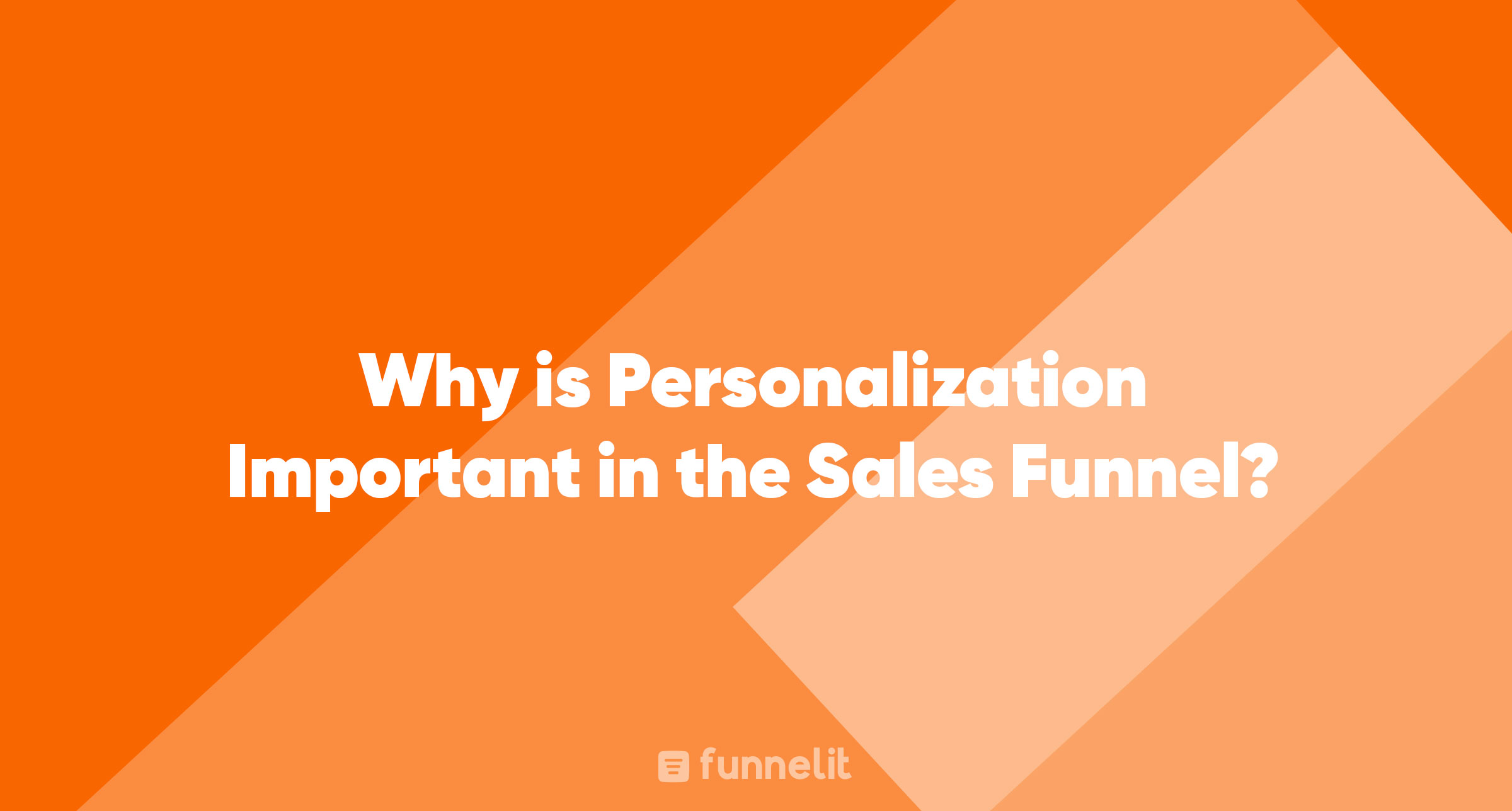Have you ever wondered why some brands seem to know exactly what you want, even before you do? In the age of information, the sales funnel has evolved, and personalization has emerged as a key player in this transformation. As we delve into the importance of personalization in the sales funnel, we'll uncover the reasons behind its growing significance.
1. Introduction to the Modern Consumer Landscape
Today's consumers are more informed, connected, and discerning than ever before. With the vast amount of information available at their fingertips, they expect brands to recognize their unique needs and preferences. The sales funnel, a model that illustrates the journey of a potential customer from awareness to purchase, has had to adapt to these evolving expectations. In this landscape, it's not just about making a sale; it's about creating a tailored experience that resonates with each individual.
2. The Shift from Mass Marketing to Personalized Marketing
Gone are the days when a generic advertisement would appeal to the masses. The one-size-fits-all approach, which dominated the marketing scene for decades, is becoming increasingly ineffective. Why? Because consumers crave relevance. They want to feel that the content they engage with speaks directly to them. Enter personalized marketing. With the rise of data analytics and advanced technologies, businesses can now segment their audience, understand their behaviors, and tailor their marketing strategies accordingly. This shift not only enhances the relevance of marketing efforts but also ensures that brands remain top-of-mind in an overcrowded marketplace.
3. Enhanced Customer Experience
Personalization is synonymous with an enhanced customer experience. By catering to individual needs and preferences, brands can create a seamless and memorable journey for their customers. Imagine visiting an online store that remembers your past purchases, suggests products based on your browsing history, and even greets you by name. Such experiences make customers feel valued and understood, leading to higher levels of satisfaction. Moreover, a personalized experience reduces the friction often associated with the buying process, making it easier for customers to find what they're looking for and make a purchase.
4. Increased Conversion Rates
The ultimate goal of any sales funnel is to convert prospects into paying customers. Personalization plays a pivotal role in achieving this. By presenting relevant content, offers, and recommendations at each stage of the funnel, brands can guide prospects closer to the point of purchase. For instance, a personalized email campaign that addresses a user's specific interests can lead to higher open and click-through rates. Numerous studies and real-world examples have shown that personalization can significantly boost conversion rates. When customers feel that a brand's message resonates with their needs and desires, they are far more likely to take the desired action, be it signing up for a newsletter, downloading an app, or making a purchase.
5. Building Trust and Loyalty
Trust is the foundation of any lasting relationship, and the bond between brands and consumers is no exception. Personalization fosters this trust. When customers see that a brand consistently recognizes and caters to their preferences, they begin to feel a deeper connection. This isn't just about seeing their name in an email; it's about the brand demonstrating a genuine understanding of their needs, habits, and desires. Over time, these personalized interactions lead to increased loyalty. A customer who feels "known" by a brand is more likely to return for repeat purchases and less likely to be swayed by competitors.
6. Optimized Marketing Spend
Every marketing dollar counts, and personalization ensures that brands get the most bang for their buck. Instead of casting a wide net and hoping for the best, personalized marketing allows for targeted efforts that reach the right audience with the right message. This precision leads to higher engagement rates and, consequently, a better return on investment. Furthermore, by analyzing the data from personalized campaigns, brands can gain insights into what works and what doesn't, allowing for continuous optimization. In the long run, this not only saves money but also ensures that marketing efforts are always aligned with consumer needs and preferences.
7. Staying Ahead in a Competitive Market
In today's saturated market, standing out is more challenging than ever. Brands are constantly vying for the attention of consumers, and those that fail to resonate risk fading into obscurity. Personalization offers a competitive edge. By tailoring interactions and offerings to individual consumers, brands can differentiate themselves from the masses. It's not just about selling a product or service; it's about selling an experience that feels unique to each customer. As the market continues to evolve, personalization will only grow in importance. Brands that prioritize and master this approach will be better positioned to capture the hearts and wallets of consumers, ensuring their longevity and success in the marketplace.
Conclusion
In conclusion, personalization is not just a fleeting trend but a fundamental shift in how businesses approach their customers. By understanding and implementing personalized strategies within the sales funnel, brands can foster deeper connections, optimize their marketing efforts, and ultimately drive greater success in an ever-competitive market.
